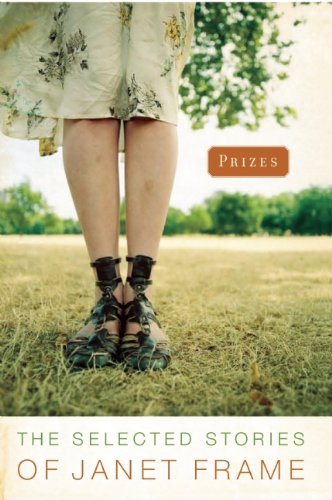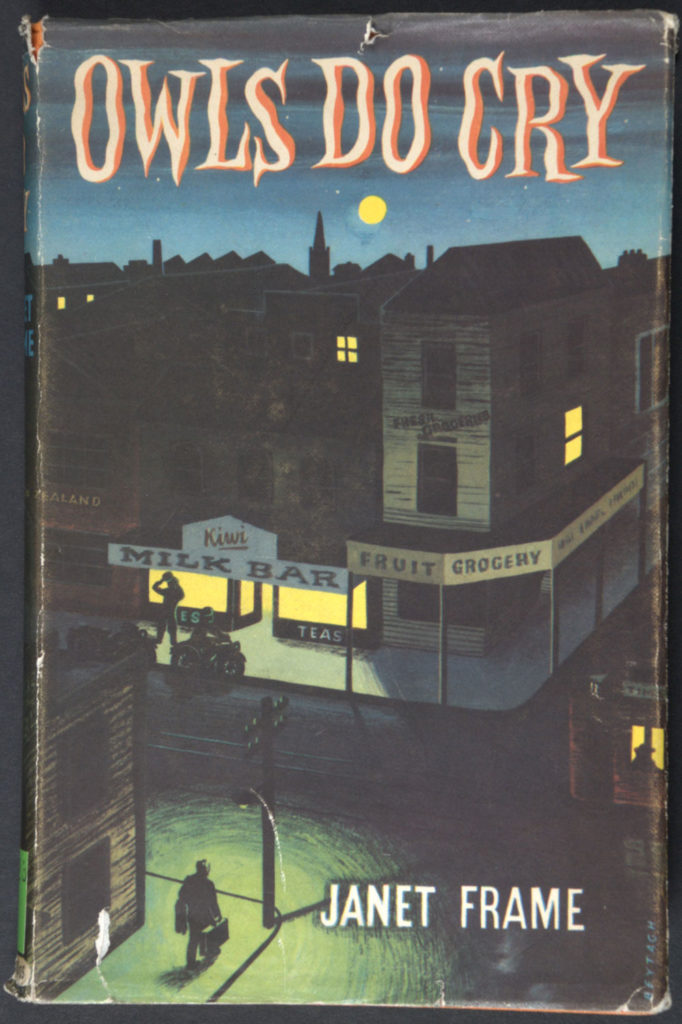 This is deservedly one of the classic New Zealand novels. When I returned it to the library, the librarian eagerly asked me how it was. I said it was really good — a novel version of Frame’s short stories. The shifting viewpoints give a broad understanding of the characters and events, and the impressionistic first-person narrative really made me feel what it must be like for the main character, living a life very different to mine. Bad things happen to her, but there are also many marvellous moments of beauty:
This is deservedly one of the classic New Zealand novels. When I returned it to the library, the librarian eagerly asked me how it was. I said it was really good — a novel version of Frame’s short stories. The shifting viewpoints give a broad understanding of the characters and events, and the impressionistic first-person narrative really made me feel what it must be like for the main character, living a life very different to mine. Bad things happen to her, but there are also many marvellous moments of beauty:
Continue reading
Articles about New Zealand
Owls Do Cry — Janet Frame
He’ll Be OK — Celia Lashlie
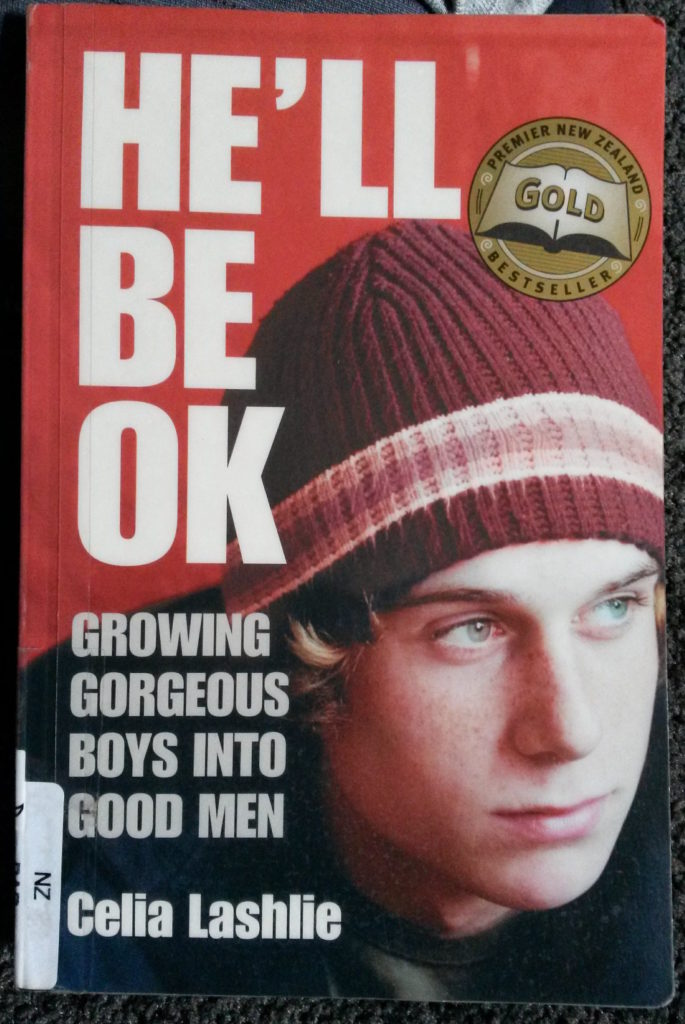 This book is about raising boys, especially teenagers. It’s heartfelt and compelling, and it has a lot of good things to think about and remember if you have a teenaged son, or are planning to have one.
This book is about raising boys, especially teenagers. It’s heartfelt and compelling, and it has a lot of good things to think about and remember if you have a teenaged son, or are planning to have one.
Celia Lashlie spent a lot of time at boys’ schools talking with the boys and their teachers, and describes what it’s like to be a student in a boys’ school. She describes the experience really thoroughly — as I read, I really felt I knew what their world was like. But there are many different ways for boys to experience their school life, and I thought she focused on one without really acknowledging others.
The view in the book is undoubtedly true for many boys — the importance of sports, mates, school spirit — but experiences are different for everyone. I went to a boys’ high school myself, and I do recognise some of the aspects of schoolboy life that Lashlie describes. But overall my own experience was more middle-of-the-road than that described in the book. Of course some of my fellow students were much more extreme than me, but some were more boring and conventional — I don’t think my experience was that unusual. Lashlie does occasionally nod towards alternatives, but overall the world she describes does seem traditional and stereotyped. Perhaps that’s the most obvious view to an outsider, but I do feel Lashlie romanticises things a bit.
Can You Tolerate This? — Ashleigh Young
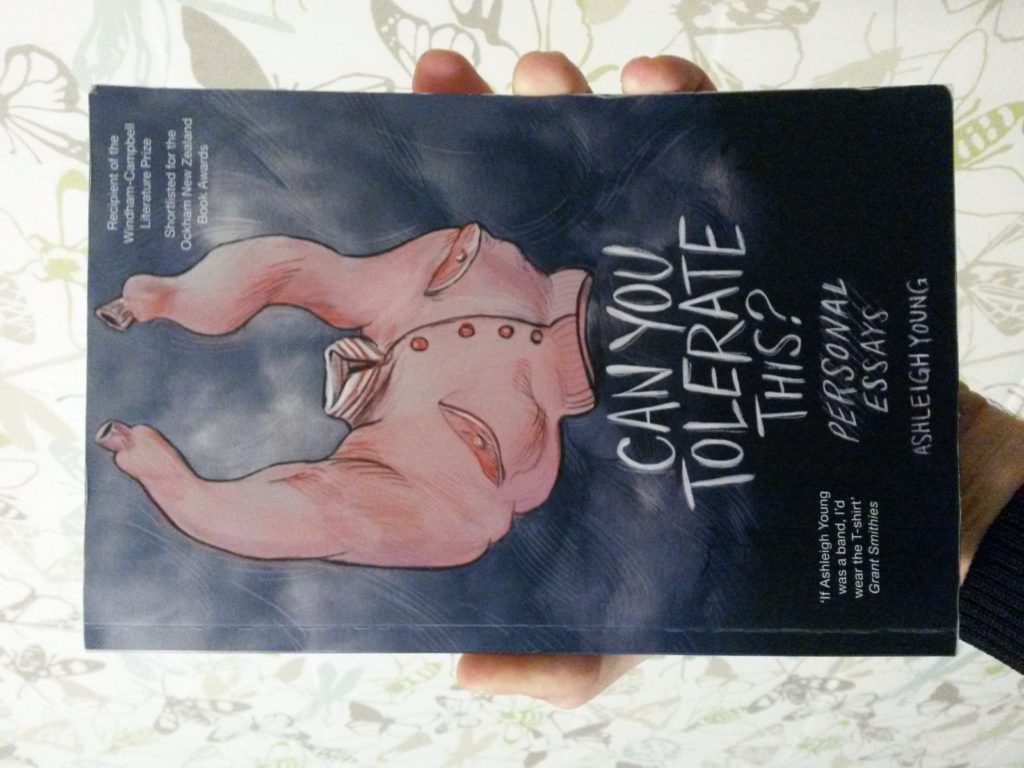
This is like one of those great, wide-ranging conversations where you talk about everything, from what you did last weekend to the meaning of life, and everything in between. Each essay is on its own topic and they are apparently unrelated, but as I got into the second half of the book I found that they started to go together and give a coherent picture.
Continue readingMansfield and Me — Sarah Laing
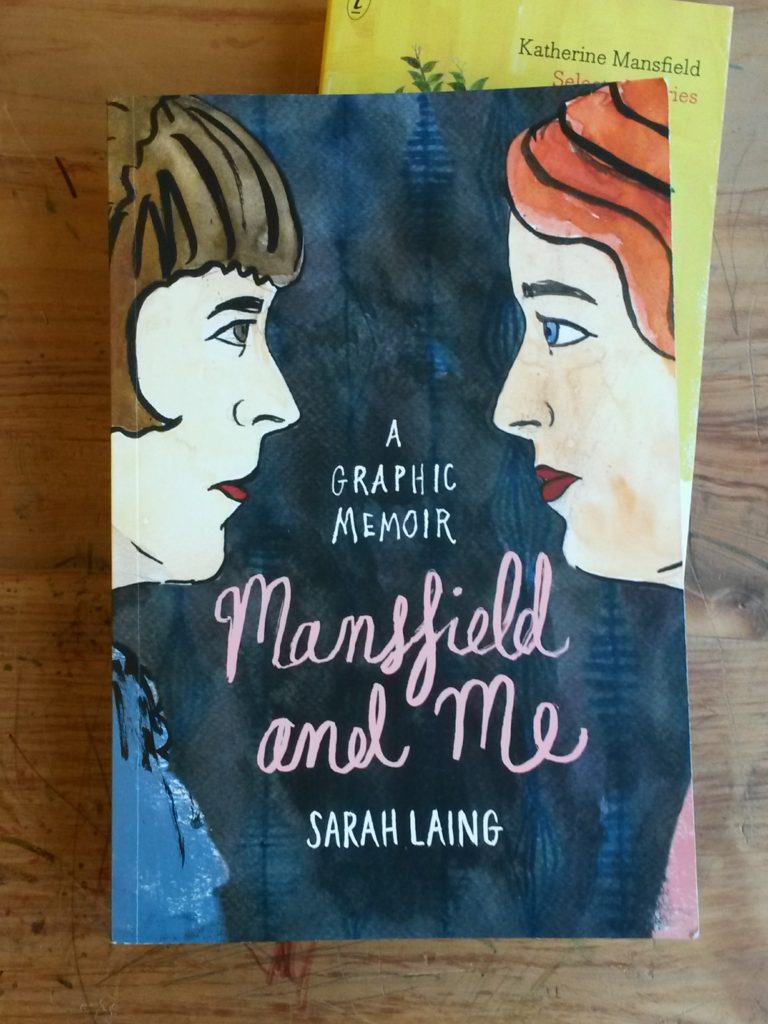
This biography/ autobiography/ graphic novel is idiosyncratic, interesting and fun. It has sent me off to read and re-read both Katherine Mansfield and Sarah Laing, different writers from different centuries who still seem to have a lot in common.
Continue readingBilly Bird — Emma Neale
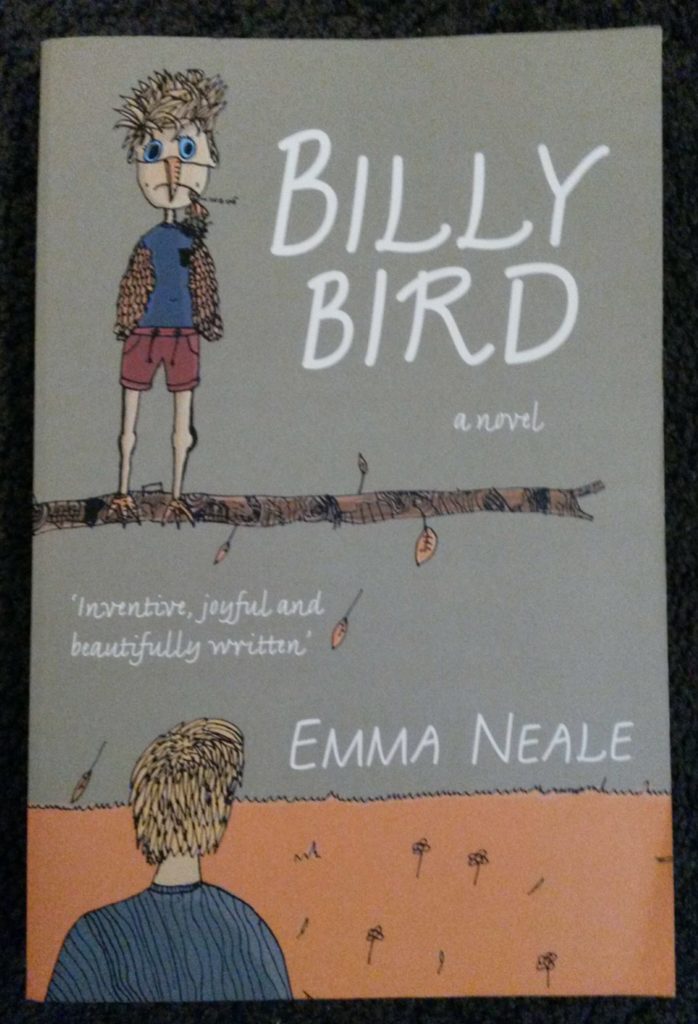
This is a wonderful story of a quirky boy and his family as they go through some funny, tragic, interesting times. The premise is that Billy turns into a bird, or believes he does. But there is a lot more happening around that, and it all makes sense in the end.
Continue readingWellbeing Economics — Dalziel & Saunders
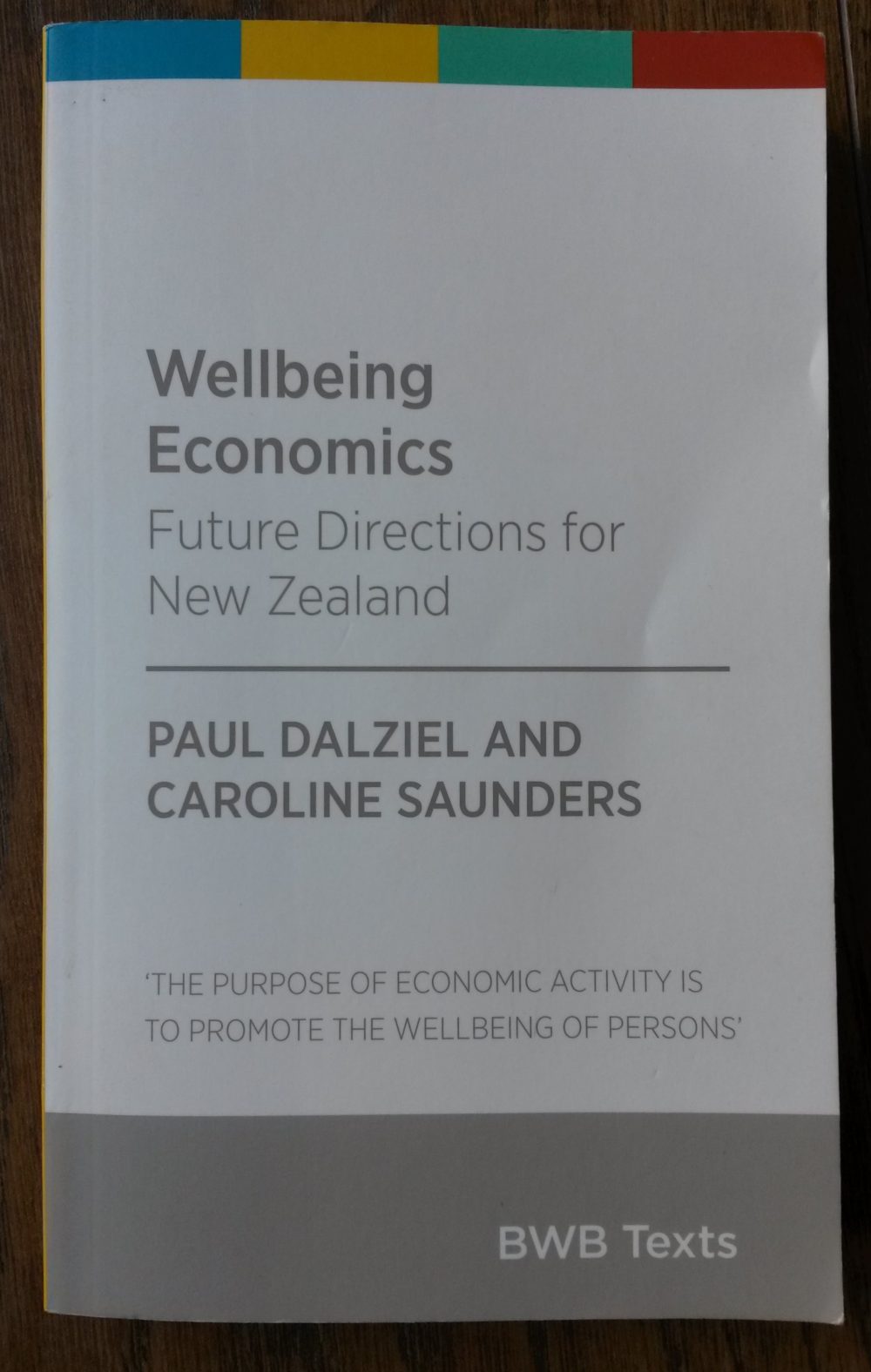 This short but thought-provoking book describes a way that New Zealand’s economy could be reorganised to focus on the wellbeing of all its citizens, defined as
This short but thought-provoking book describes a way that New Zealand’s economy could be reorganised to focus on the wellbeing of all its citizens, defined as
The ability to lead the kinds of lives that they value and have reason to value.
There’s a lot of NZ-specific information, but the ideas are universally applicable. The approach is a bit different from the ideas put forth by the usual suspects across the political spectrum. Paul Dalziel and Caroline Saunders believe a market economy is essential, but recognise that it must be managed to allow the markets to deliver their maximum benefit. Even the most free markets are still heavily regulated, most obviously by contract and property law, and this helps us see that regulation is not antithetical to free markets — it is essential.
As for the Big Government versus Small Government debate, Dalziel and Saunders argue that government should be big enough. Government’s job is to do the things that citizens cannot do individually or collectively, and to help them add value to the things they choose to do. But the onus is on citizens to initiate this process and to use this support for their own individual and communal wellbeing. This is a shift from the old welfare state to what Dalziel and Saunders call the wellbeing state.
Thorndon — Kirsty Gunn
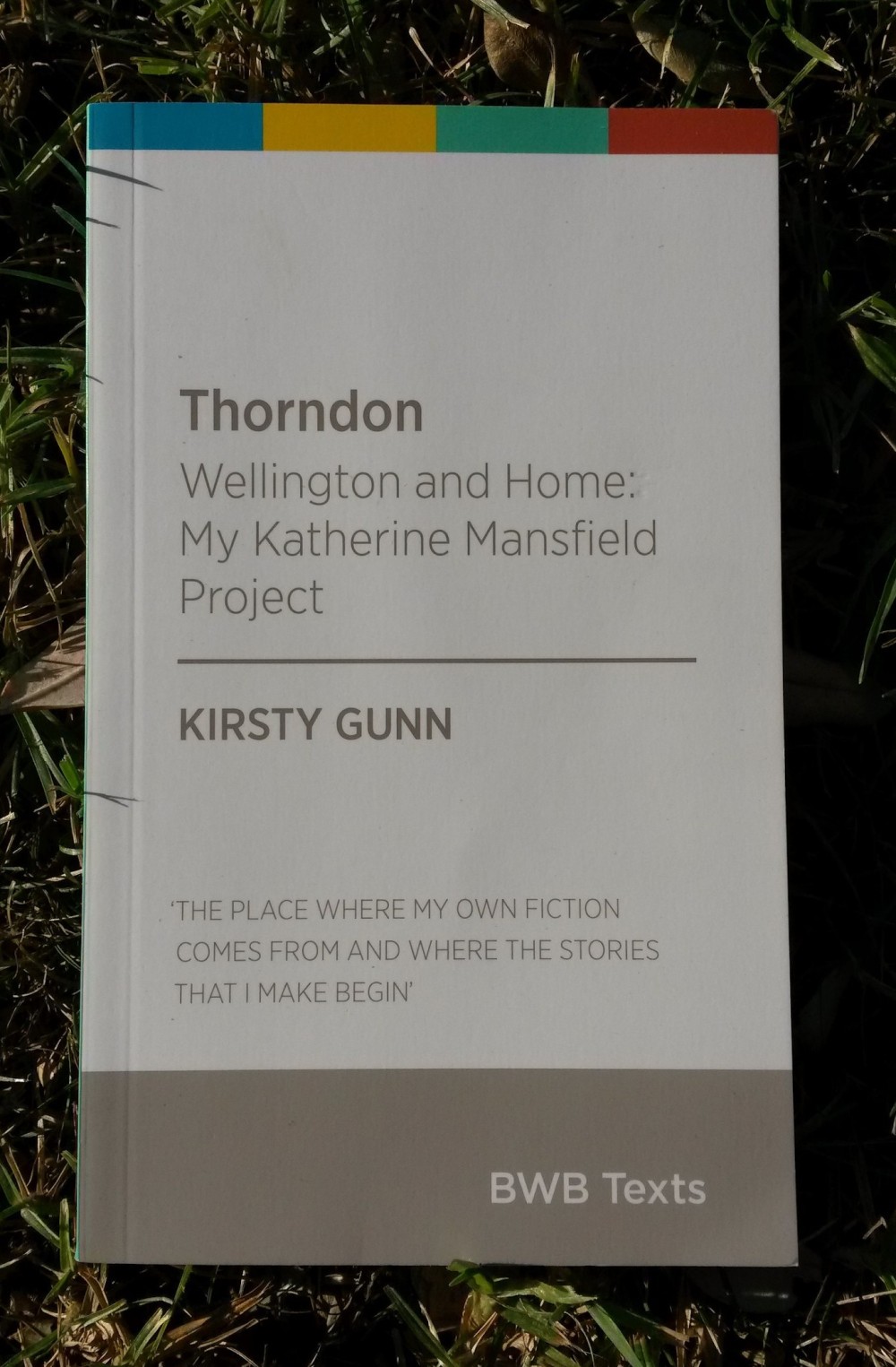 A meditation on belonging, place, family and more. Kirsty Gunn did what Katherine Mansfield never did: she returned from the UK to live for a time in her home town of Wellington, New Zealand. She stayed in a cottage in Thorndon, the suburb where Mansfield grew up, on a scholarship to work on her “Katherine Mansfield project”. This book is the result.
A meditation on belonging, place, family and more. Kirsty Gunn did what Katherine Mansfield never did: she returned from the UK to live for a time in her home town of Wellington, New Zealand. She stayed in a cottage in Thorndon, the suburb where Mansfield grew up, on a scholarship to work on her “Katherine Mansfield project”. This book is the result.
The style of Thorndon feels more like Mansfield than Gunn, in my limited experience of both writers. It feels as if Gunn, a Mansfield scholar, was deeply affected by being steeped in Mansfield’s formative environment. Even more so given that it was also Gunn’s.
The Big Music — Kirsty Gunn
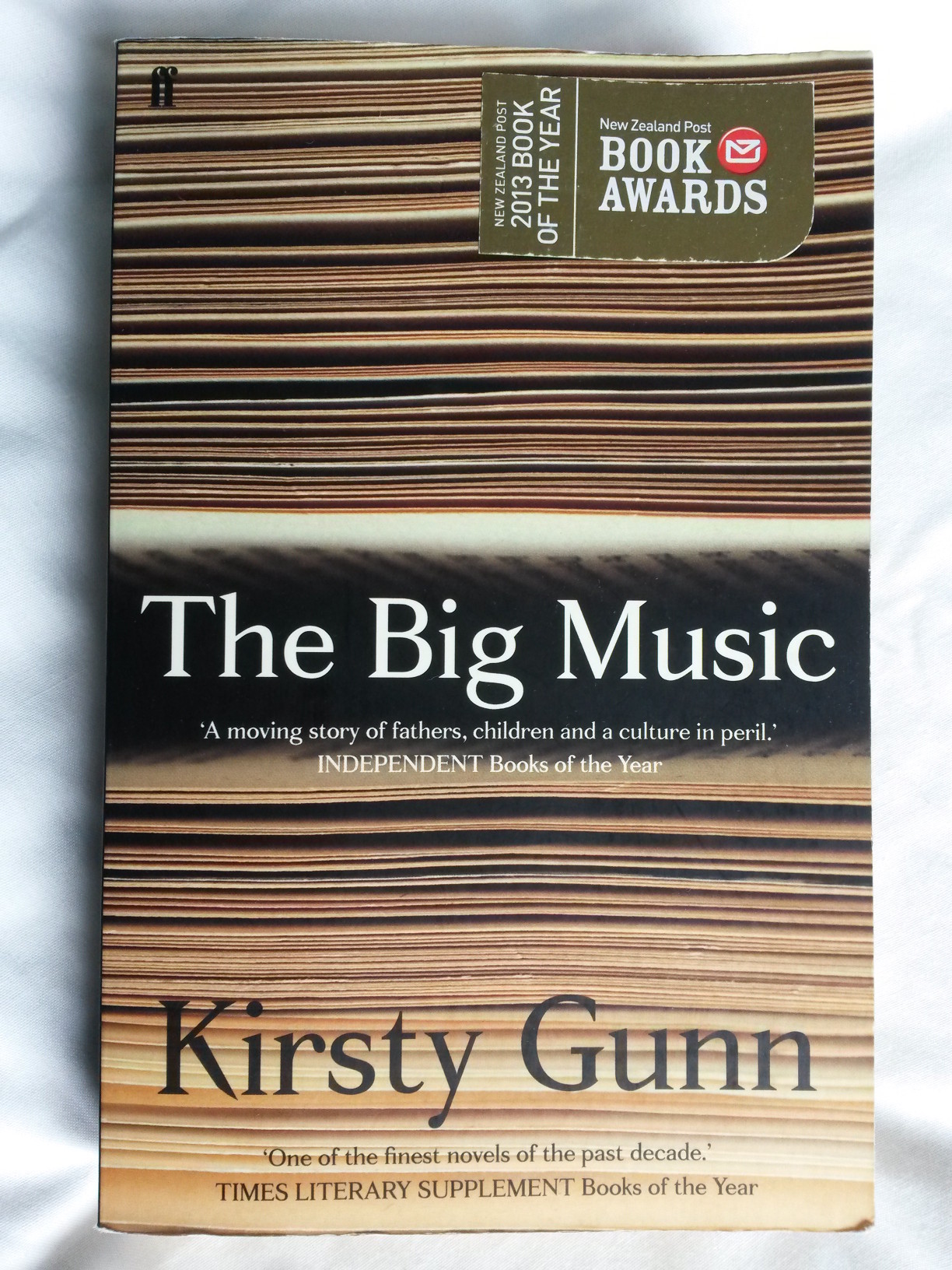 An old man kidnaps his housekeeper’s granddaughter and takes her for a walk in the hills. He needs to write her into a piece of music he is composing. This is the start of this novel, and as it continues we learn more about the history of his family, which has lived for many generations in a remote house in the Scottish highlands. The house and family have become famous in the world of classical bagpipe music, the “big music” of the title.
An old man kidnaps his housekeeper’s granddaughter and takes her for a walk in the hills. He needs to write her into a piece of music he is composing. This is the start of this novel, and as it continues we learn more about the history of his family, which has lived for many generations in a remote house in the Scottish highlands. The house and family have become famous in the world of classical bagpipe music, the “big music” of the title.
I have never seen a book put together like this one before. It’s presented as a documentary, with the story built up from fragments of letters, recordings and papers found during the author’s research into the family and house. Supporting the story are many many footnotes, including frequent cross-references to other parts of the story and to the numerous appendices including plans of the house, maps of the area, family history, proceedings of musical societies, academic papers and more. At first I found the footnotes intrusive and fussy, but eventually I realised that this was all an essential part of the book.
